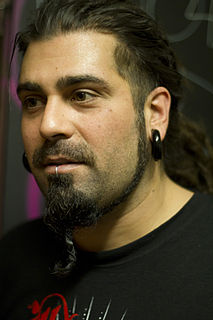A Quote by James Blunt
In a way song writing can almost be detrimental, because suddenly you find an outlet that is a kind of cheating. You don't need to have direct communication. You can say, 'I can't describe it to you, but I will record it and send it to you.'
Related Quotes
In a sense, journalism can be both helpful and detrimental to a writer of fiction because the kind of writing you need to do as a journalist is so different. It has to be clear, unambiguous, concise, and as a writer often you are trying to do things that are more ambiguous. I find that writing fiction is often an antidote to reading and writing too much journalism.
Singing in second language makes you brave in a way you're not aware of. You say things in very blunt ways or direct ways. It sets your mind free because you don't have a history with the language. You have to use the most direct way of communication, which is saying what you want to say in the way you can.
Nowadays, not to say that that doesn't happen, but music is made a lot almost in a laboratory where you get one guy working in one studio, they send the file to another guy in some other part of the world, they send it back and then they send it this way and that way. Musicianship is kind of - there's nothing wrong with that. In fact, some great music is made that way.
Writing a song is like - you're writing a song all the time. It's just when it pops out. It's been there all the time. It's not something that suddenly you do it. It's always there. Suddenly, it's in the right mixture inside you to come out. Usually when you're writing on the piano or a guitar, you don't write in lyrics, on their own. To me it's very boring.
I wanted to be a director first to protect my writing. I'm a playwright and you don't need to protect your writing when you're in the theater because everyone's there to protect the writing. When I had an idea for a film that I really cared about as my own, I wanted to direct it, and then I immediately became interested in directing in and of itself because it's such a deep art. You suddenly have all these tools at your disposal to tell the story.
'Something/Anything?' was kind of a different record, since I'm playing everything myself. A lot of the songs on there have a particular kind of instrumentation that is much like a guitar quartet, and in some ways, it's an exceptional song on that record because so much of the writing on 'Something/Anything?' is piano-oriented.
A young person, or someone who's writing in a different way - in some ways you could say, eventually someone will find them. Eventually someone will hear them. But it's good a lot of young people persevere. Because sometimes you have to send something out a thousand times before anyone recognizes your value.
Most people don't like to think. This is why human religions are so popular. It almost doesn't matter what the belief system is, as long as it's firm, consistent, clear in its expectation of the follower, and rigid. Given those characteristics, you can find people who believe in almost anything. It's God's way, they say. God's word. And there are those who will accept that. Gladly. Because, you see, it eliminates the need to think.



































